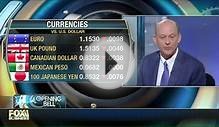
 Fuse | Getty Images
Fuse | Getty Images
Big investors plan to keep pouring money into hedge funds despite returns near or less than market benchmarks.
No less than 97 percent of 284 institutional investors surveyed by Credit Suisse said they plan to be "highly active" in making hedge fund allocations during the second half of 2014. That's even more than the 85 percent who already made allocations in the first half of the year.
"The money is coming from institutions which are smart money that understand the risk inherent in both the stock and bond market right now, " said Brad Alford, chief investment officer of Alpha Capital Management, a $200 million firm that invests in hedge fund-like mutual funds. "They are rebalancing back into the less risky asset classes like hedge funds that hedge."
The Credit Suisse report echoes a survey of wealthy families by eVestment that showed that hedge funds were the asset class with the greatest expected increase in allocations over the next two years, beating out private equity, traditional stocks and real estate.
According to industry research firm HFR, investors allocated $56.9 billion of new capital to hedge funds in the first half, pushing total global assets to more than $2.8 trillion, surpassing the previous record of $2.7 trillion from the prior quarter.
Read MoreAckman leads small group of hedge outperformers
Mark Yusko, founder of fund of hedge funds Morgan Creek Capital Management, said that recent flows into hedge funds are partially the result of stock-market gains—swelling portfolios have to be reset with more money added to asset classes outside of equities.
"Simple rebalancing requires that more money go into hedge funds, " Yusko said.
He also said that institutions were willing to trade lower returns with hedge funds in order to have a better chance to achieve the minimum performance necessary to meet long term needs (usually returns of around 7.5 percent a year).
"They would rather have strategies that achieve those returns with a high probability, even if they give up the upside, " Yusko said.
Investor demand for specific hedge fund strategies closely follows recent winners and losers.
The hottest strategy, with 56 percent of investors surveyed by Credit Suisse increasing their allocation net of those decreasing it, was event driven. The term refers to funds that bet on corporate events, such as restructurings or management changes, than can boost value.
The Absolute Return Event Driven Index, which tracks such funds, is up 5.56 percent in 2014, compared with a return of 4.21 percent across all strategies. Examples of specific fund first half performance include $14.7 billion Pershing Square Capital Management's International fund (up 25.35 percent); $15 billion Third Point's Offshore fund (up 6 percent); and $24.4 billion York Capital Management's Investment fund (up 11.7 percent).
Another strategy in great demand were hedge funds that focus on investing in stocks, so-called "long/short equity" vehicles. Credit Suisse said that a net of 41 percent of institutional investors planned to add these vehicles to their allocation. That's as the Absolute Return U.S.Equity Index is up 4.34 percent, better than the average hedge fund but worse than a 6.05 percent return for the S&P 500 Index.
Examples of large equity-focused hedge fund performance in the first half includes $9 billion Maverick Capital Management's Maverick Fund (up 1.13 percent through June 27); $9 billion Glenview Capital Management's Capital Partners fund (up 9.58 percent); and $3.9 billion Passport Capital's Long/Short Strategy Fund (down 0.2 percent).
Musko said hedge funds get a bad rap because they are often compared to benchmarks like the S&P 500. He added that equity-focused hedge funds are not trying to beat stock indexes in the short term, but rather they are trying to provide decent returns with lower volatility.
Read MoreAlpha addict: The amazing career of Leon Cooperman
The Credit Suisse report notes how the swing to stock-oriented event-driven and equity funds "underlines the on-going rotation of capital by investors from fixed-income into equities."
Investors have also steered away from so-called macro funds, ones that bet on broad macroeconomic themes. Just 17 percent of investors plan to increase their allocation to them, according to Credit Suisse.
Examples of large macro funds losing money in the first six months of 2014 include $15 billion Discovery Capital Management's Global Macro Fund (down 13.8 percent); $40 billion Brevan Howard Capital Management's Brevan Howard Fund (down 4.45 percent); and $62.5 billion Fortress Investment Group's Macro Fund (down 5.89 percent).
YOU MIGHT ALSO LIKE












